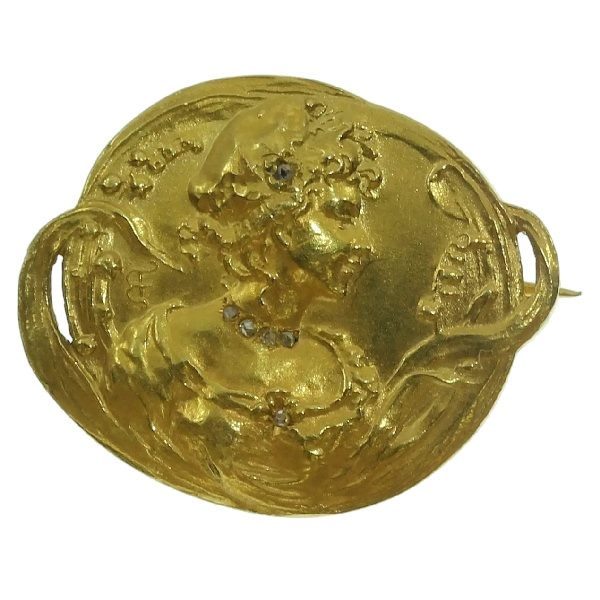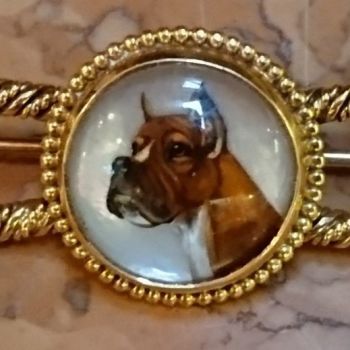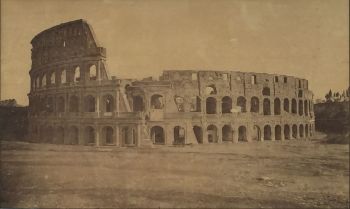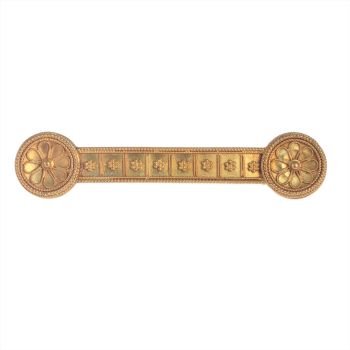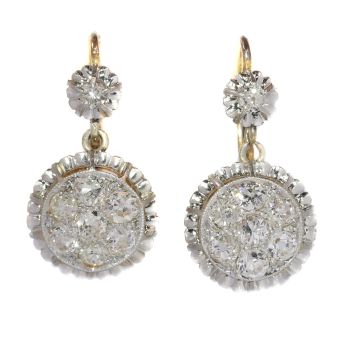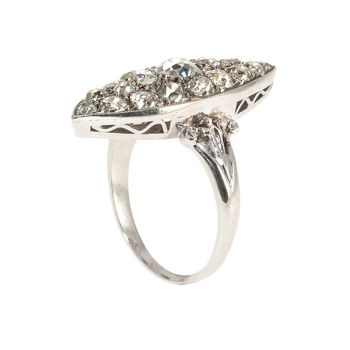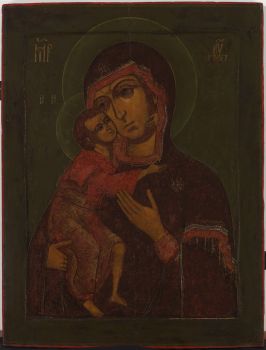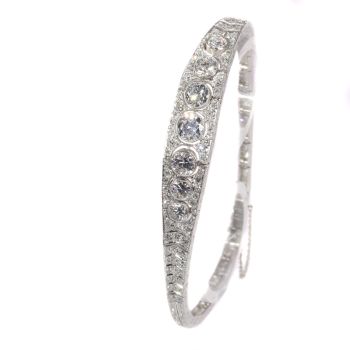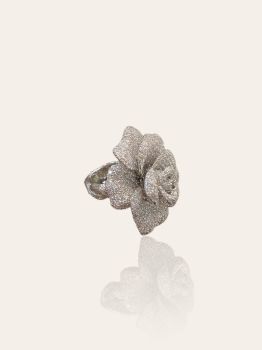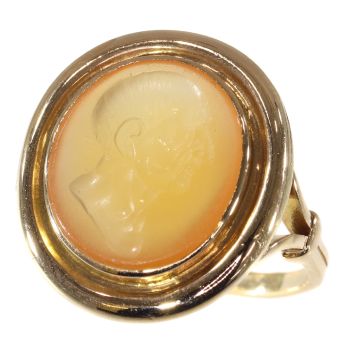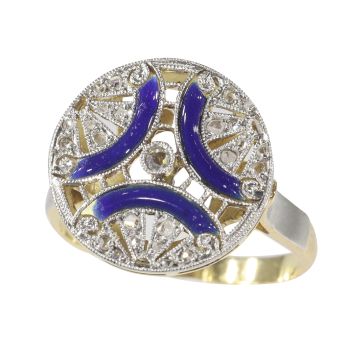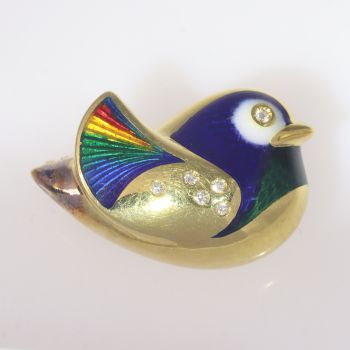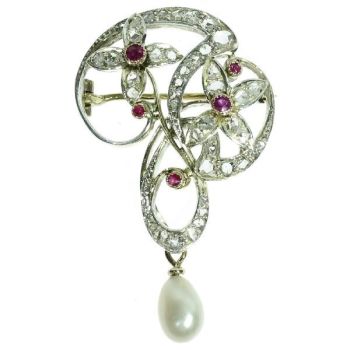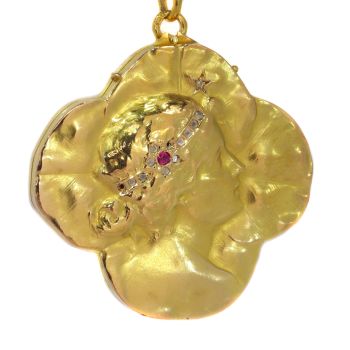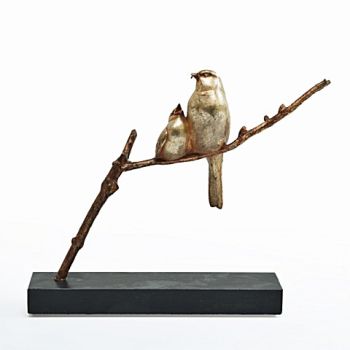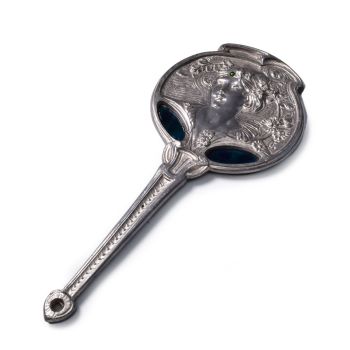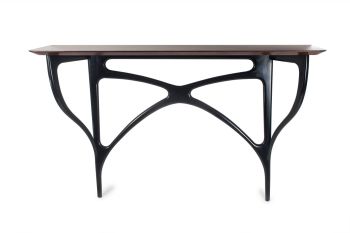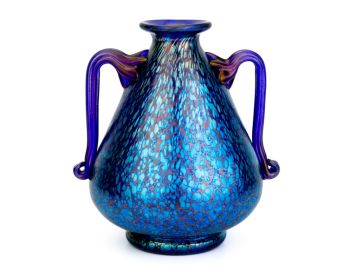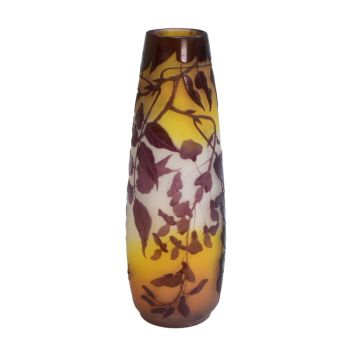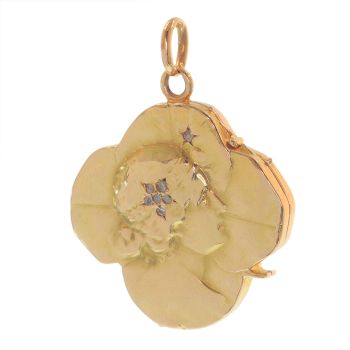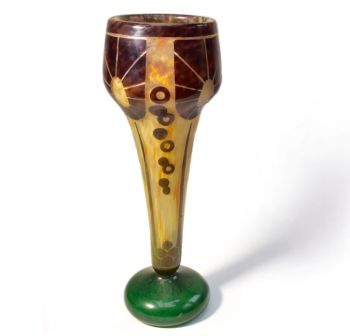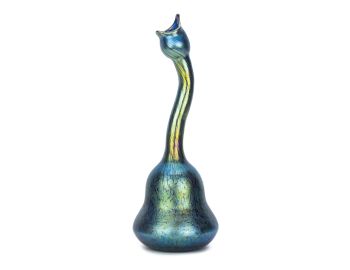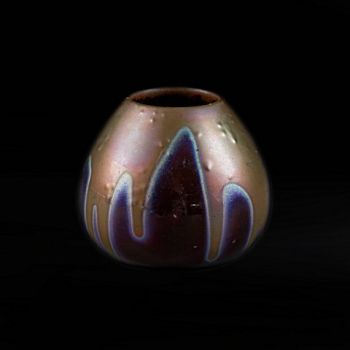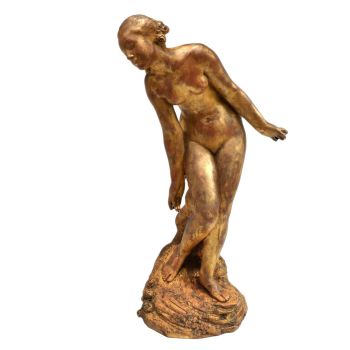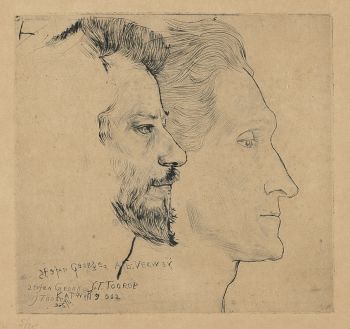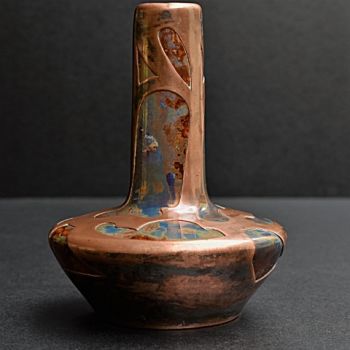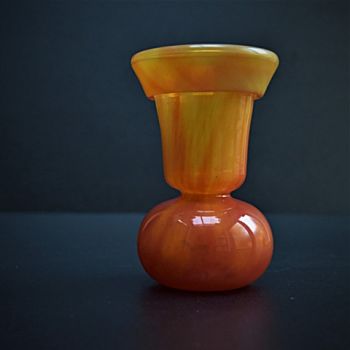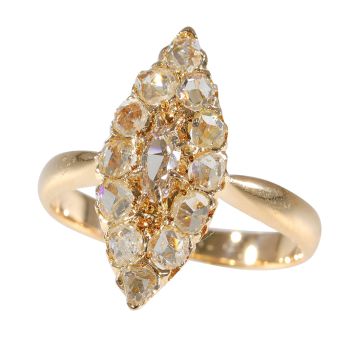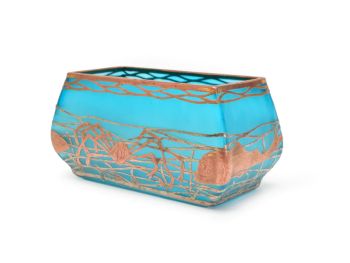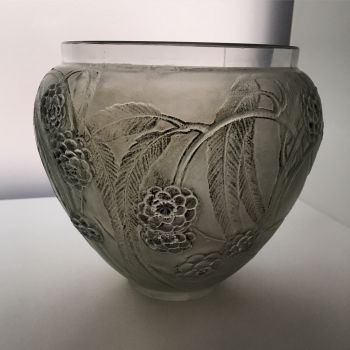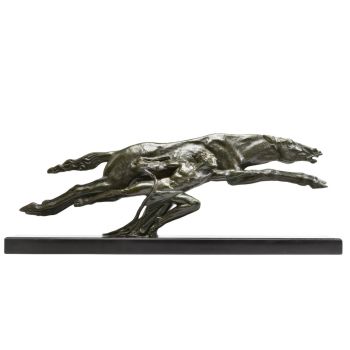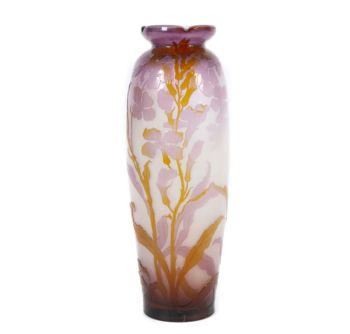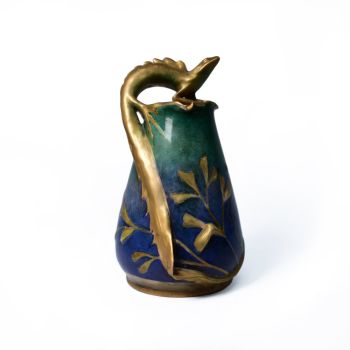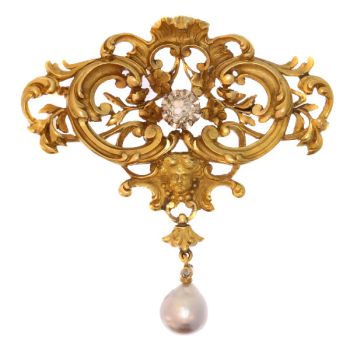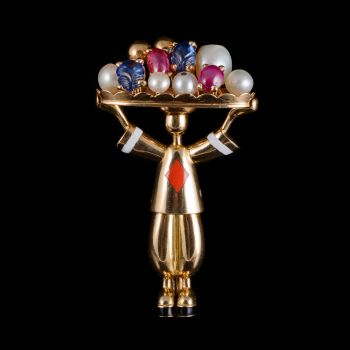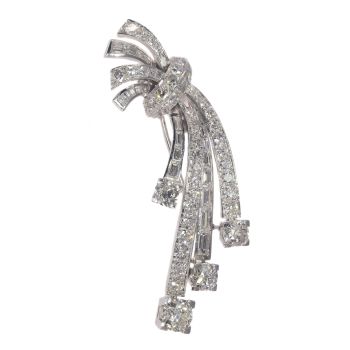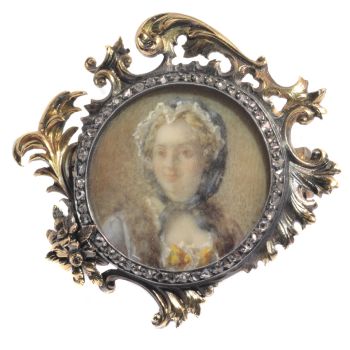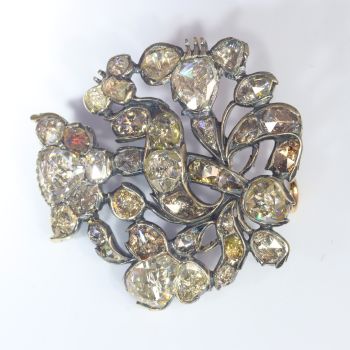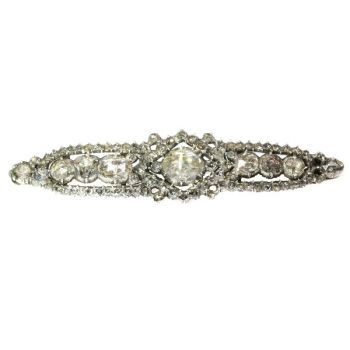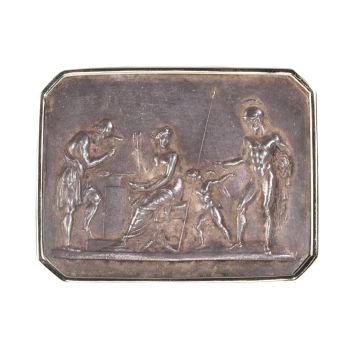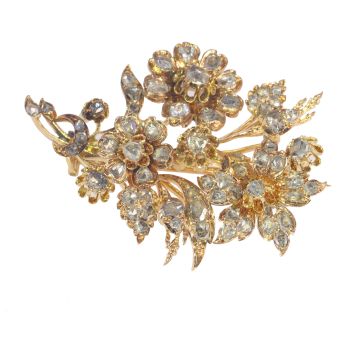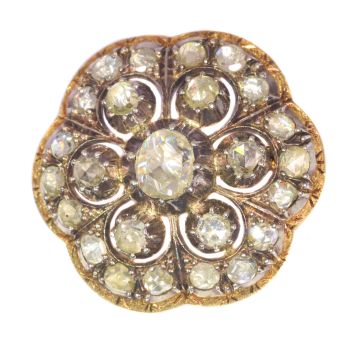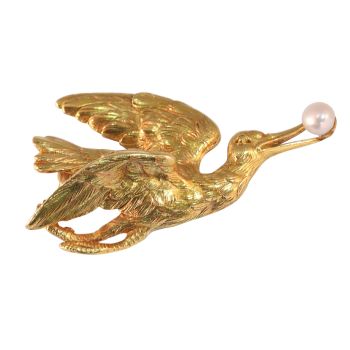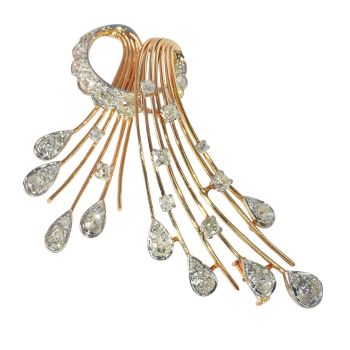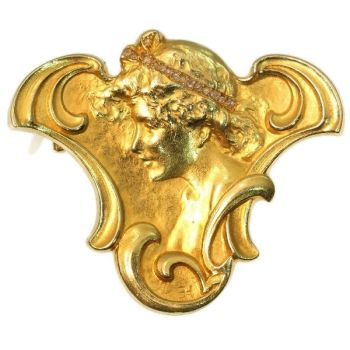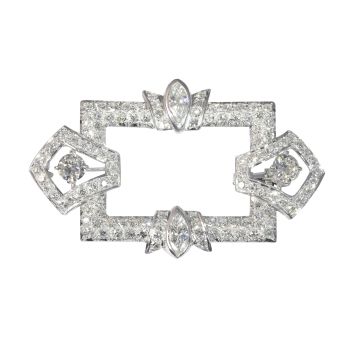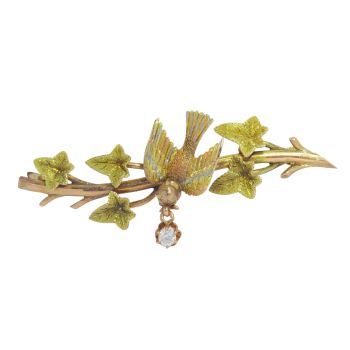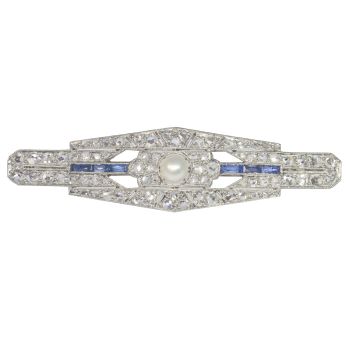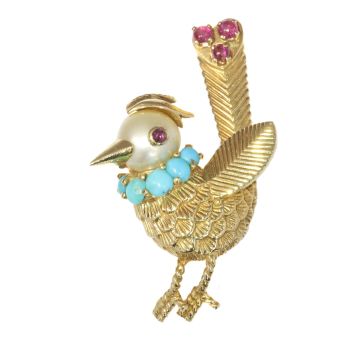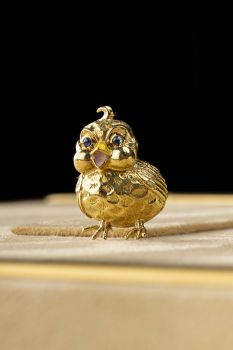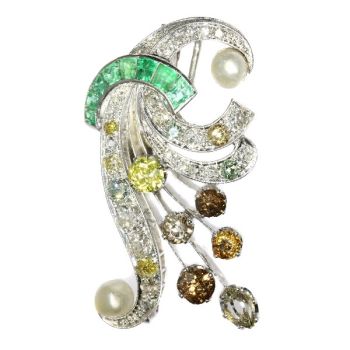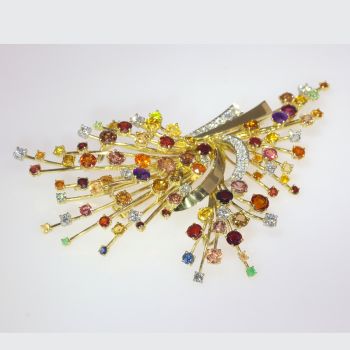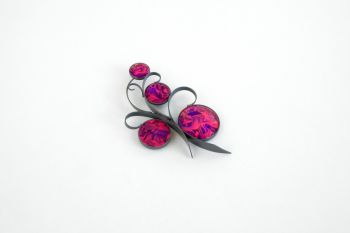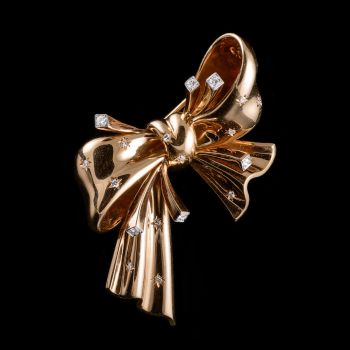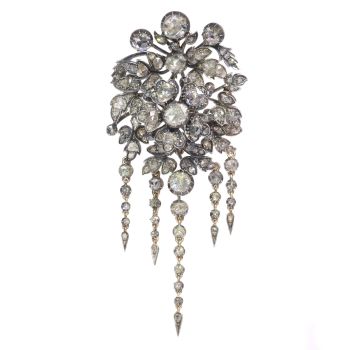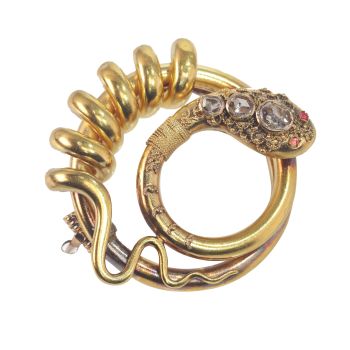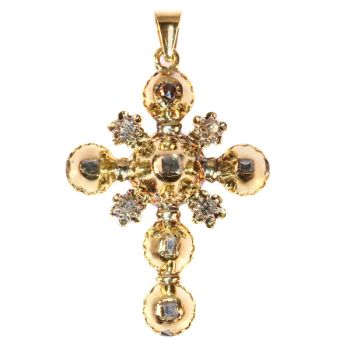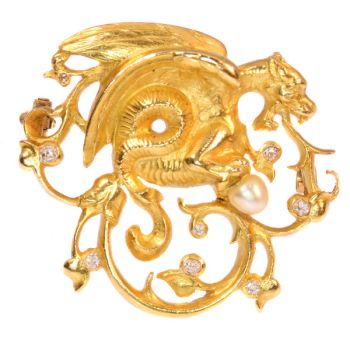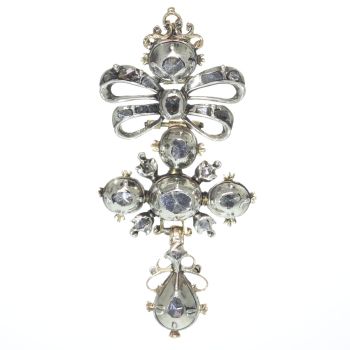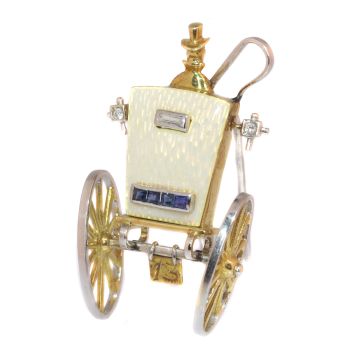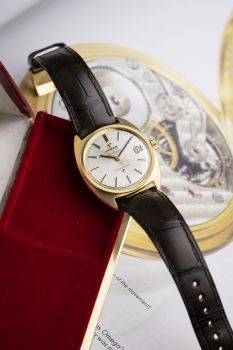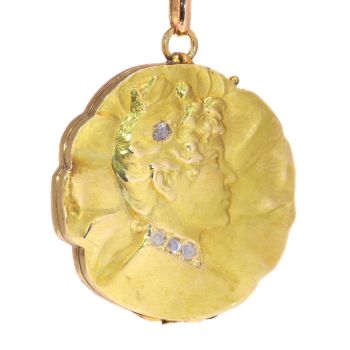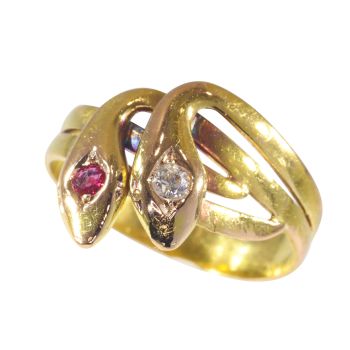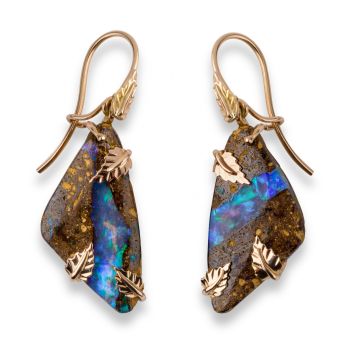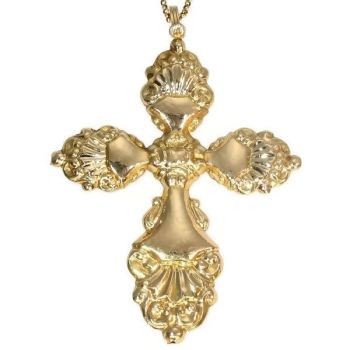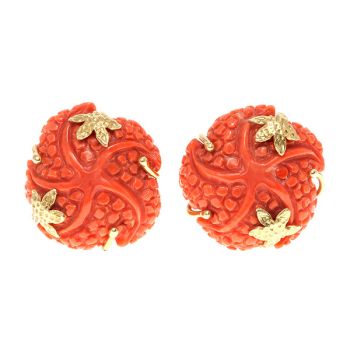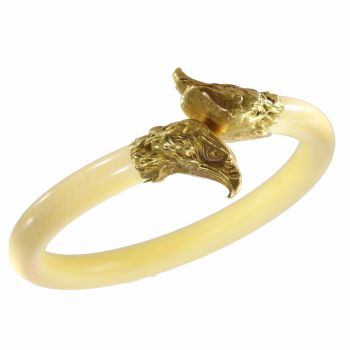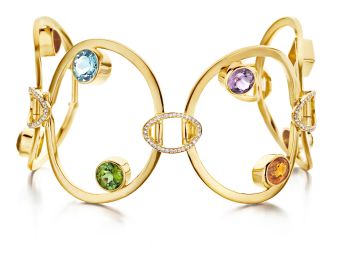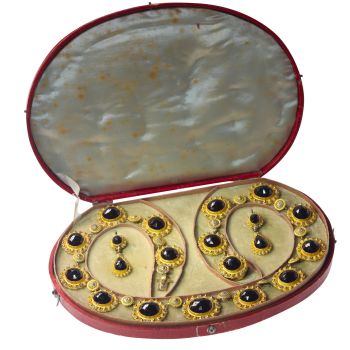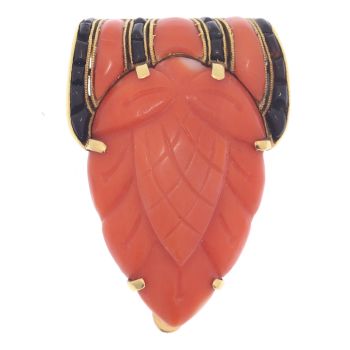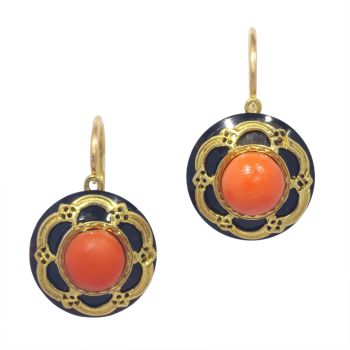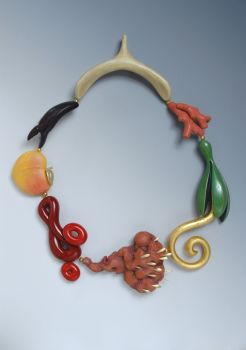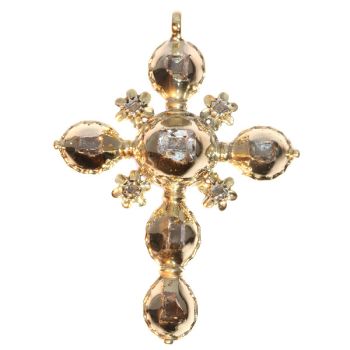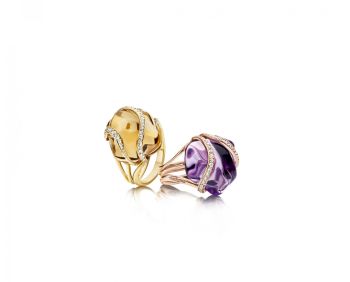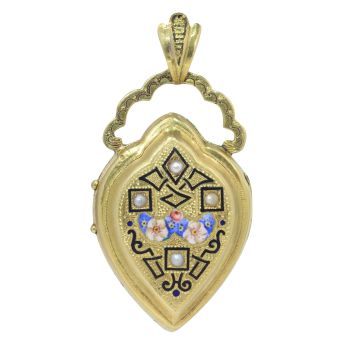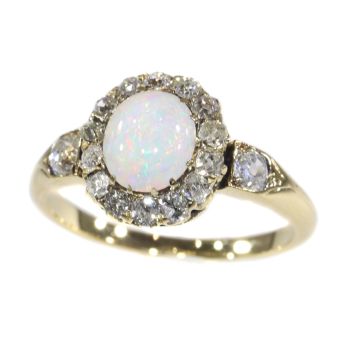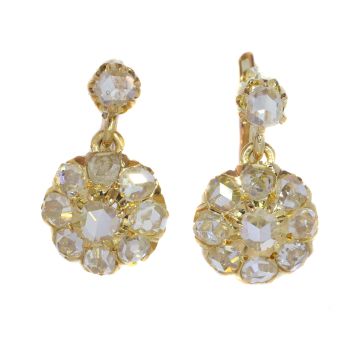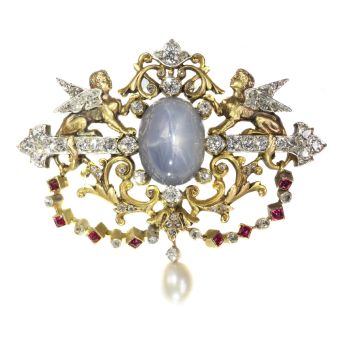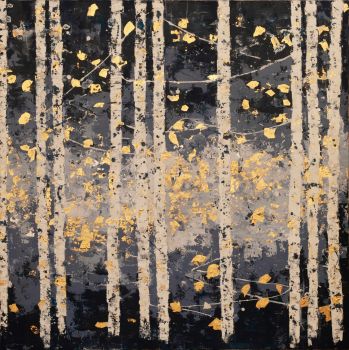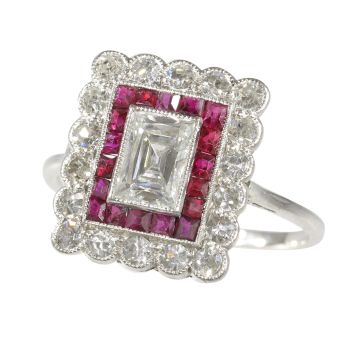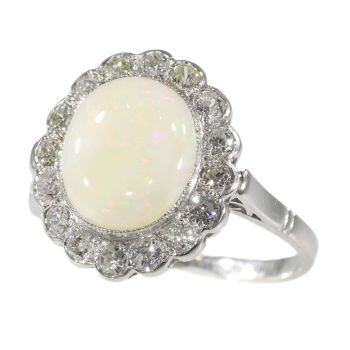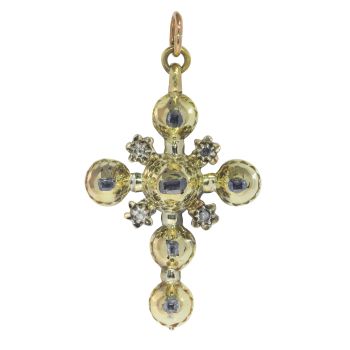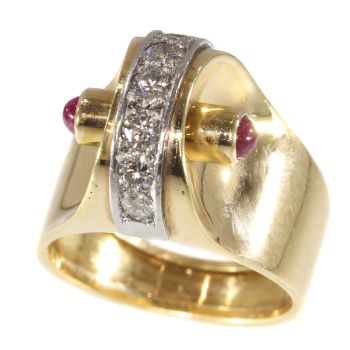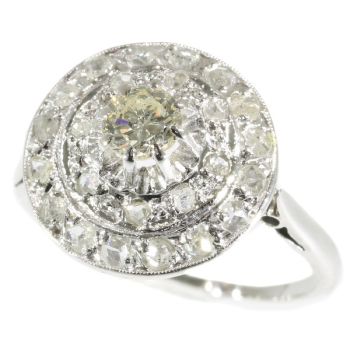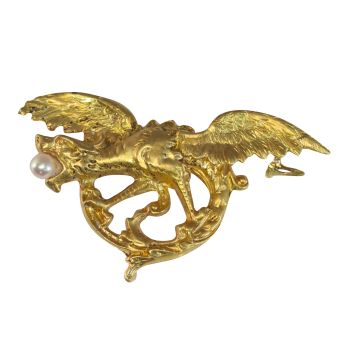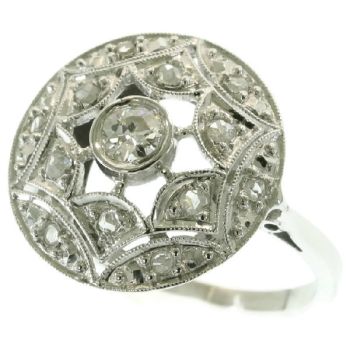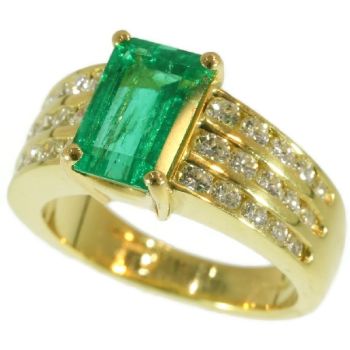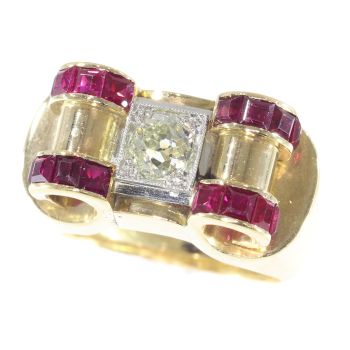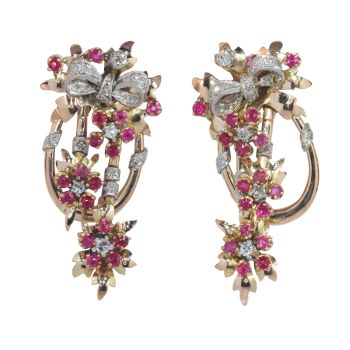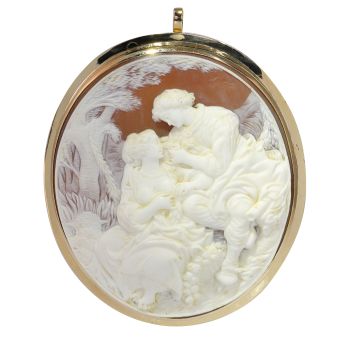Vroege Art Nouveau gouden broche met afbeelding van liefde in de lente 1900
Onbekende Kunstenaar
Goud
€ 3.750
Adin Fine Antique Jewellery
- Over kunstwerk
This 18K yellow gold Art Nouveau medallist brooch gleams of a warming scenery of engraved Lilies of the valley enclosing a woman's bust with six rose cut diamonds as her necklace, brooch and hairclip. As nature revives with the blossoming of the Lilies, so will the disarming allure of this romantic antique jewel enlighten your shared path in affection and honour.
Antique jewelry object group: brooch
Condition: excellent condition
- (more info on our condition scale)
Country of origin: France
Style: Between Victorian and Art Nouveau - Victorian decorative arts refers to the style of decorative arts during the Victorian era. The Victorian era is known for its eclectic revival and interpretation of historic styles and the introduction ofcross-cultural influences from the middle east and Asia in furniture, fittings, and Interior decoration. Victorian design is widely viewed as having indulged in a regrettable excess of ornament.
The Arts and Crafts movement, the aesthetic movement, Anglo-Japanese style, and Art Nouveau style have their beginnings in the late Victorian era. Art Nouveau (French for New Style) is an international movement and style of art, architecture and applied ar - especially the decorative arts - that peaked in popularity at the turn of the 20th century (1890–1905).
The name "Art Nouveau" is French for "new art". It is also known as “Jugendstil”, German for "youth style", named after the magazine Jugend, which promoted it, and in Italy, Stile Liberty from the department store in London, Liberty & Co., whichpopularised the style. A reaction to academic art of the 19th century, it is characterized by organic, especially floral and other plant-inspired motifs, as well as highly stylized, flowing curvilinear forms.
Art Nouveau is an approach to design according to which artists should work on everything from architecture to furniture, making art part of everyday life.
- See also: late-Victorian, early Art Nouveau, eclecticismor more info on styles
Style specifics: - Medaillist Revival (in the The Belle Époque towards Art Nouveau) In 1886 Emile Olive (1853-1902) launched the medal-jewel with Vernier's Diane which resulted in the revival of medaillist's art in France.
Period: ca. 1900
- (events and facts in 1900)
Source of inspiration: Romanticism
Theme: A woman surrounded by lily of the valley flowers and roses
Material: 18K yellow gold
- (more info on precious metals)
Extra information: Lily of the Valley - The Lily of the Valley is most of seen as symbol for recurrent luck and happiness. Legend tells of the affection of a lily of the valley for a nightingale that did not come back to the woods until the flower bloomed in May. Othernames include May lily, May bells, lily constancy, ladder-to-heaven, male lily, and muguet (French)
Diamonds:Six rose cut diamonds. We do not have the weight of the diamonds which is normal in our trade when it comes to rose cuts.
Birthstones: Diamond is the birthstone (or month stone) for April.
- (more info on birthstones)
Monogram: EF or BF
Hallmarks: The French control mark for 18K gold representing an eagle's head that was in use in France from about 1838.
- (more info on hallmarks)
Dimensions: 3,06 cm (1,20 inch) x 2,50 cm (0,98 inch)
Weight: 10,70 gram (6,88 dwt)
Reference Nº: 14247-0083
Copyright photography: Adin, fine antique jewelry
- Over kunstenaar
Het kan voorkomen dat een kunstenaar of maker onbekend is.
Voor sommige werken is het niet te bepalen door wie het gemaakt is of dat het is gemaakt door (een groep) ambachtslieden. Voorbeelden zijn beelden uit de Oudheid, meubels, spiegels of handtekeningen die vaak niet duidelijk of leesbaar zijn. Maar ook sommige werken zijn helemaal niet gesigneerd.
Ook kunt u de volgende beschrijving vinden:
•"Toegeschreven aan …." waarschijnlijk een werk van de kunstenaar maar niet zeker of gedeeltelijk
•“Atelier van ….” of werkplaats van” een werk uitgevoerd in het atelier of atelier van de kunstenaar, eventueel onder zijn toezicht
•“Cirkel van ….” een werk uit de periode van de kunstenaar die zijn invloed laat zien, nauw verbonden met de kunstenaar maar niet noodzakelijkerwijs zijn leerling
•“Stijl van ….” of “Volger van ….” een werk uitgevoerd in de stijl van de kunstenaar, maar niet noodzakelijk door een leerling; kan eigentijds of bijna eigentijds zijn
•“Wijze van ….” een werk in de stijl van de kunstenaar maar van latere datum
•"Na …." een kopie (van welke datum dan ook) van een werk van de kunstenaar
•“Getekend…”, “Gedateerd….” of “Ingeschreven” dan is het werk gesigneerd/ gedateerd/ ingeschreven door de kunstenaar. De toevoeging van een vraagteken duidt op een element van twijfel
•"Met handtekening ...", "Met datum ...", "Met opschrift..." of “Draagt signatuur/datum/opschrift” dan is de handtekening/datum/opschrift toegevoegd door iemand anders dan de kunstenaar
Bent u geïnteresseerd om dit kunstwerk te kopen?
Artwork details
Related artworks
- 1 - 4 / 12
Johann Loetz (Lötz) Witwe Klostermühle
Johann Loetz Witwe – Jugendstil Cobalt Papillon vaas1900 - 1910
Prijs op aanvraagAntiques Emporium
Johann Loetz (Lötz) Witwe Klostermühle
Johann Loetz Witwe – Ausfuehrung 146 Titania vase – 19121910 - 1919
Prijs op aanvraagAntiques Emporium
1 - 4 / 24Mauboussin
Mauboussin strik broche1950 - 1955
Prijs op aanvraagAns Hemke-Kuilboer Juwelier & Antiquair
1 - 4 / 24Mauboussin
Mauboussin strik broche1950 - 1955
Prijs op aanvraagAns Hemke-Kuilboer Juwelier & Antiquair
1 - 4 / 24- 1 - 4 / 12

